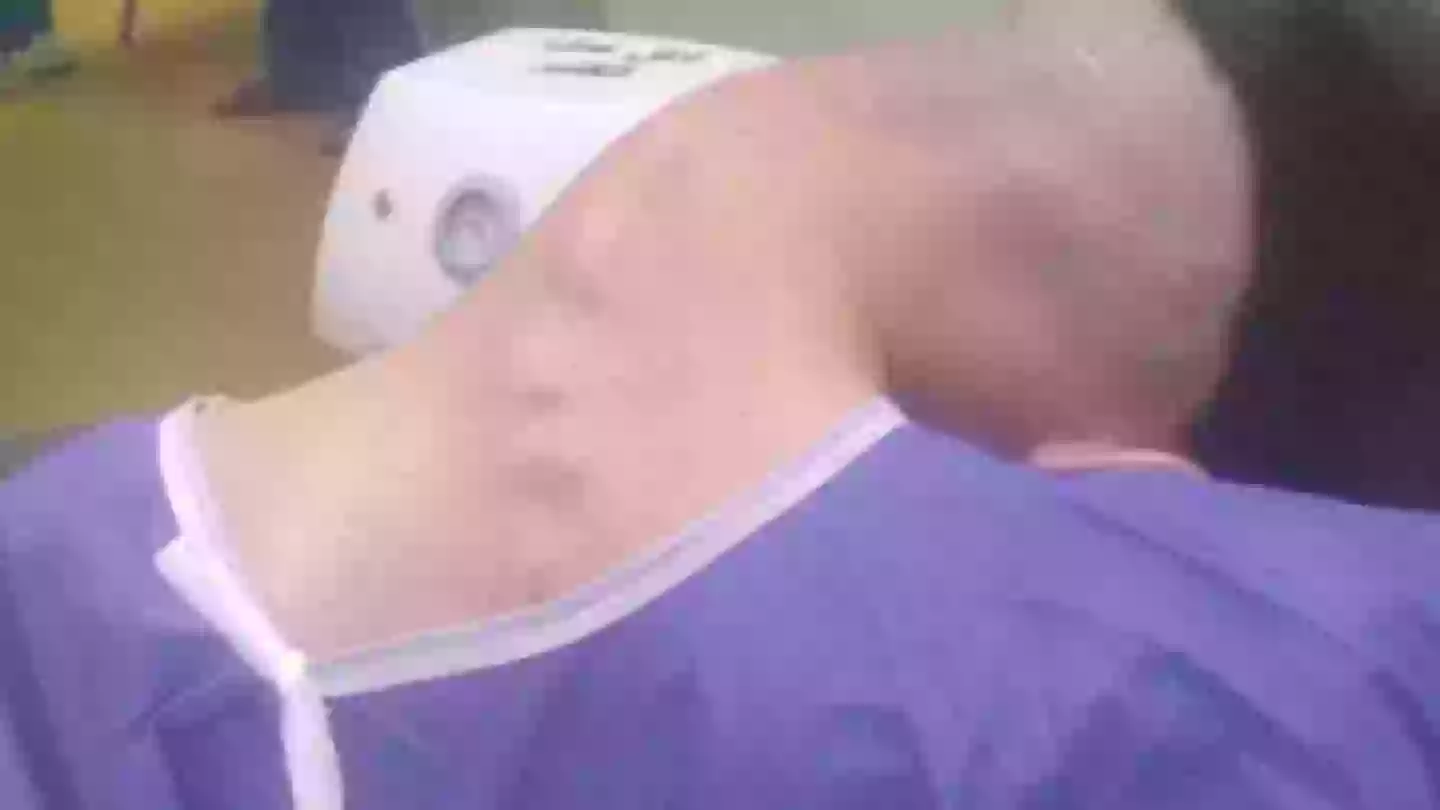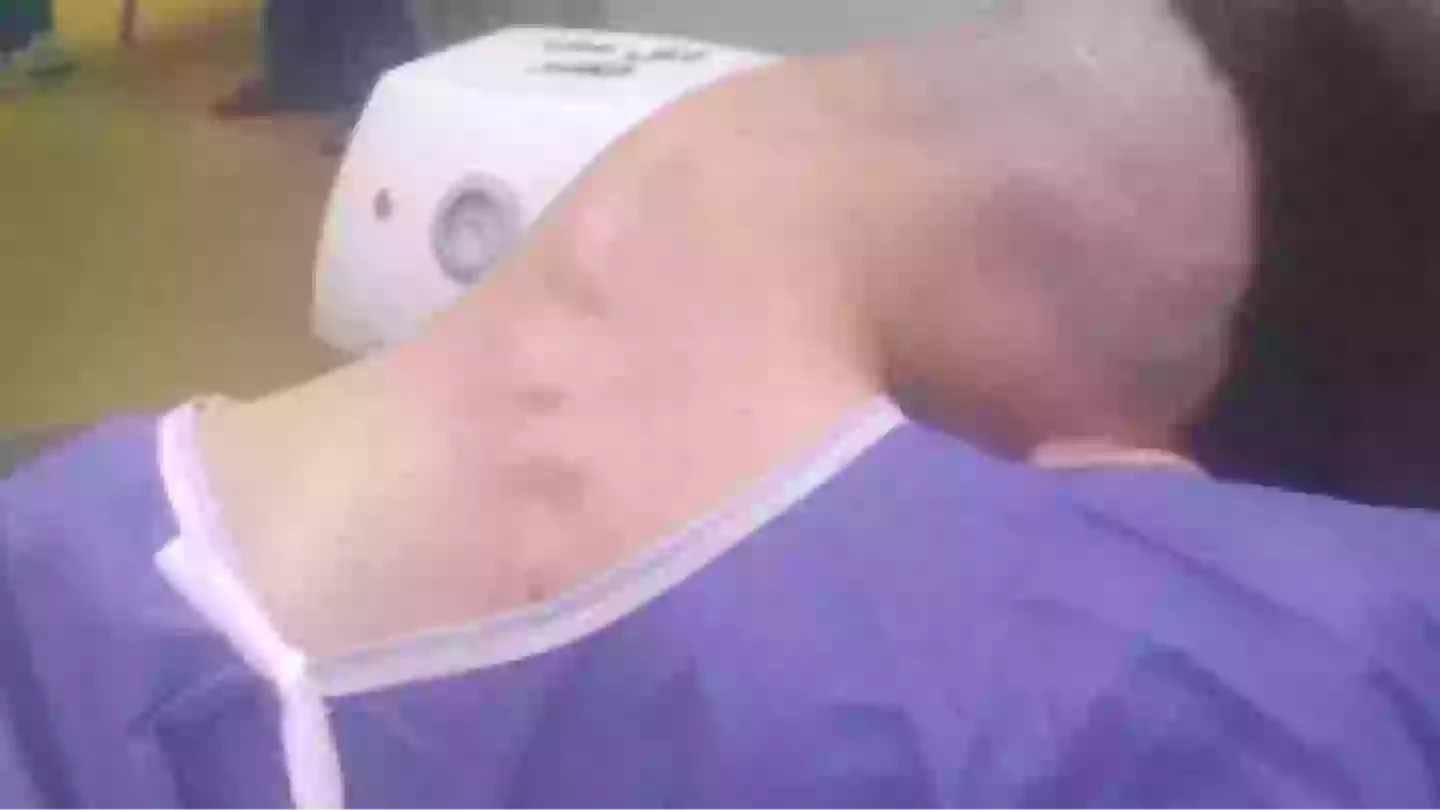A 23-year-old man from Iran developed a rare condition termed ‘dropped head syndrome’ after enduring years of substance abuse.
Medical professionals photographed the young man, highlighting the alarming condition where his neck could no longer support his head.
Doctors attributed the man’s use of amphetamines, commonly referred to as speed, to a ‘fixed kyphotic neck position’, which forced his chin to fall onto his chest for extended durations.
The extreme backward bend in his neck resulted from a hazardous mix of drugs, including heroin, opium, and speed.

The medical team needed to determine if the man’s severe neck condition would have manifested without drug abuse.
Their findings indicated no prior evidence suggesting such a condition would have developed without the influence of drugs.
Dr. Majid Rezvani, a co-author of the study, stated: “We discovered that drug abuse contributed to the uncommon development of severe complicated cervical kyphosis [excessive rounding of the upper back].”
He further clarified, “The drug does not have a direct effect on musculoskeletal changes. Instead, there is an indirect effect: when the patient uses the drug, they remain in a certain position for a long time, and over months this results in musculoskeletal changes that led to kyphoscoliosis.”
Known colloquially as floppy head syndrome, dropped head syndrome is typically recognized by extreme neck muscle weakness.
While commonly linked to neuromuscular disorders such as motor neurone disease, drug abuse can also instigate this condition.
It’s reported that the man experienced chronic neck pain and paresthesia for approximately 15 months.

Additionally, he suffered sensations of tingling, numbness, and pins and needles in his arms, with self-administered remedies proving ineffective.
Despite the obvious symptoms, a CT scan confirmed a severely deformed spine, though his condition showed slight improvement under general anesthesia.
Surgical intervention was necessary to remove the deformed bone, enabling the man to walk a day post-surgery with the support of a hard collar.
Following his operation, the man entered rehabilitation for his drug addiction, and within months, doctors were pleased to observe the repositioning of his spine.
For confidential guidance regarding drug issues, contact the American Addiction Centers at (888) 830-7624, available 24/7, or visit their website.

